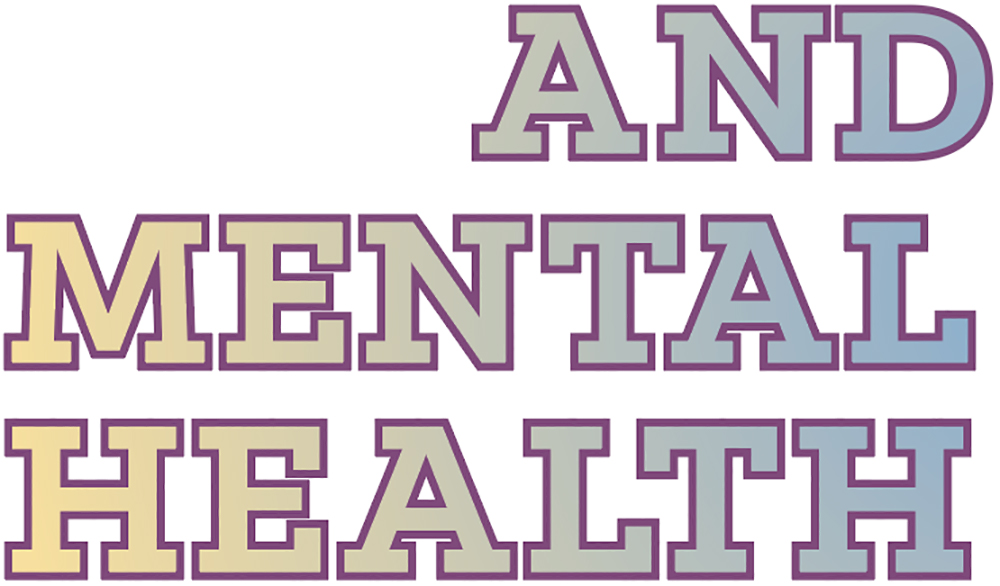



ccording to the National Alliance on Mental Illness (NAMI), about 1 in 5 adults in the U.S. – 43.8 million – experiences mental illness in any given year. Many of these individuals turn to their church or their personal faith in search of support. Despite the prevalence of mental health concerns, however, there is still a stigma attached to mental illness. For many, the culture of silence, mistaken expectations and misguided attitudes cause believers to feel shamed, blamed, and alone in their mental illness.
Despite a growing desire to help those suffering with mental illness, members and leaders often report feeling ill-equipped to address mental illness or mental health to their pastors, church leaders, and congregation members. A major factor that contributes to this is the failure to see how the gospel is intimately connected to the workings of the mind and heart. However, mental health and the origins of mental illness are woven throughout the Bible beginning in the book of Genesis.

One tragic result of this contention was the death of Abel at the hands of his brother Cain (Genesis 4:8). Can you imagine the depths of grief and self-condemnation that Adam and Eve felt when they knew that they were responsible for this death? Not only did they lose Abel, but also Cain in the judgment that he would be, from then on, a homeless wanderer on the earth (Genesis 4:12). The Bible does not describe the emotions of our first parents upon learning of the death of Abel. However, since depression is a part of the normal grief process, they likely experienced some level of depression. The Bible says: “Adam had sexual relations with his wife again, and she gave birth to another son. She named him Seth, for she said, ‘God has granted me another son in place of Abel, whom Cain killed’”(Genesis 4:25). This passage aptly describes the longing in a mother’s heart related to the loss of a child.
Sin created a new mental norm in the human race. No longer able to rest securely in God’s perfect love, we began living a life of fear. No longer securely attached to God, humans began living with chronic doubt, anxiety, and suspicion of one another. Relational insecurity became the norm.
The Bible is filled with other examples of what today would be called mental illness. Job when afflicted with sores expressed profound despair and grief. “Why, then, did you deliver me from my mother’s womb? Why didn’t you let me die at birth? It would be as though I had never existed, going directly from the womb to the grave. I have only a few days left, so leave me alone, that I may have a moment of comfort before I leave – never to return – for the land of darkness and utter gloom” (Job 10:18-21). Like many other humans who don’t understand why they are suffering, Job was depressed to the point of wanting to die.
“The Spirit of the Sovereign Lord is upon me, for the Lord has anointed me to bring good news to the poor. He has sent me to heal the brokenhearted and to proclaim that captives will be released and prisoners will be freed. He has sent me to tell those who mourn that the time of the Lord’s favor has come, and with it, the day of God’s anger against their enemies. To all who mourn in Israel, he will give a crown of beauty for ashes, a joyous blessing instead of mourning, festive praise instead despair.”
Jesus quoted this passage in Luke 4:18-19 when He described the mission statement for His ministry. Unfortunately, His own people did not comprehend the prophetic meaning of His words or ministry, but Jesus immediately began His ministry of healing. The Scripture notes that His healing was complete or comprehensive. Matthew 9:35 states that “he healed every kind of disease and illness” and that would include mental illness.
As we look at the life of Jesus, we see that he suffered greatly many of the afflictions that are common to us today. He was “despised and rejected – a man of sorrows, acquainted with deepest grief” (Isaiah 53:3). He was also abandoned by his followers, betrayed by one of his own disciples, physically abused, sexually abused, emotionally abused, and ultimately chose death in His amazing act of redemptive love so that we might live! He understands our suffering, but not only that, Isaiah 63:9 records that “in all their suffering he also suffered.” Whatever we experience even now, He is with us suffering our pain. In his heart of love, He would never, could never leave us or forsake us (Hebrews 13:5).
Remember that a great conflict is being waged right now is a battle for our minds and hearts. Proverbs 23:7 says that as a person thinks in his heart, so is he. We are what we think. Christian psychiatrist Curt Thompson in his book Anatomy of the Soul describes the working of the human brain in response to what we believe. Another Christian psychiatrist, Timothy Jennings in his book The God-Shaped Brain explains the negative impact that a fear-based view of God has on the brain. Jennings’ sequel, The God-Shaped Heart shares research on the healing power of love on the brain. It is interesting that Jesus gave His disciples power to cast out demons as well as heal all types of disease. While we may not often do hand to hand combat with demons as Jesus did, I would suggest that everyone time we bring our thoughts into captivity to the obedience of Christ (2 Cor 10:3-6), we are casting demons out of our minds even now.
What is the truth about you? You are loved with an everlasting love (Jeremiah 31:3), that you are precious to God (Isaiah 43:4); it is also that you are not condemned and that you belong to God (Romans 8:1-2); you are God’s child (Romans 8:16), and that you are chosen (Eph esians 1:4).
Spending time meditating on these truths found in God’s word heals our broken brains by rewiring the destructive pathways that have been built based on lies. Experiencing God each day in our own lives takes us beyond a cognitive conception of God and into a personal, living, “knowing” of God. The gospel continues to be written each day in the renewed minds and hearts of God’s children.
“The true principles of psychology are found in the Holy Scriptures,” wrote Ellen White 120 years ago, in the book Mind Character and Personality. “Man does not know his own value. He acts according to his unconverted temperament of character because he does not look unto Jesus, the Author and Finisher of his faith.”
Seeing our own value as persons who Christ loved enough to die for, and looking outwardly to Jesus rather than inwardly dwelling on our problems is tremendously therapeutic to mental wellbeing.
A Christian who has heart disease would consult a cardiologist who would provide appropriate therapies such as surgery or medication to correct the condition. Likewise, good counselors today, especially Christian counselors perform “heart surgery” to remove pathological thoughts and emotions that many of us do not even know exist. Just as Jesus came to give sight to the blind (Luke 4:18), competent counselors help us to see ourselves as we are. Our motives, hurts and hang-ups are brought from darkness into the light so that we can see them as God does (Psalm 139).
The prophecy of Malachi 4:2 has been fulfilled and continues to be fulfilled each day “the Sun of Righteousness will rise with healing in his wings.” This Scripture was fulfilled in the life of Jesus and his love for fallen humankind. The Gospel of God’s love is as healing today as it was to those who Jesus encountered centuries ago.